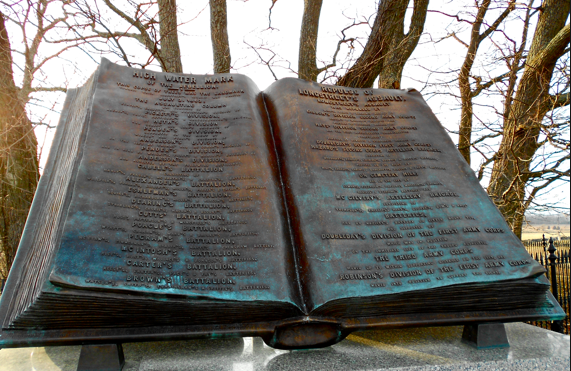Turning Points
 One of the most useful tools for bloggers is something called Statcounter. Just in case you are not familiar with this free service, Statcounter is an invisible tracking service that you can configure to track just about anything that happens on your blog (or website). Where the hits came from, where they went, how long they were there, and what they searched for on Google (or whatever) to find you. It might seem a little obsessive to meticulously go over these stats every day. But really, the information gleaned from this site has really helped me tune Keith Harris History to my liking.
One of the most useful tools for bloggers is something called Statcounter. Just in case you are not familiar with this free service, Statcounter is an invisible tracking service that you can configure to track just about anything that happens on your blog (or website). Where the hits came from, where they went, how long they were there, and what they searched for on Google (or whatever) to find you. It might seem a little obsessive to meticulously go over these stats every day. But really, the information gleaned from this site has really helped me tune Keith Harris History to my liking.
Anyway....the reason I mention all of this is because the other day I noticed a few hits from someone who had done a Google search with this intriguing question: "Why was Gettysburg the turning point of the Civil War?" The phrasing is what caught my eye - because the person asking presumed that Gettysburg was the turning point...as opposed to a turning point. Suffice it to say, Gettysburg was a significant battle in the overall scheme of things. It was the last time a major Confederate army advanced into United States territory, and the Union victory greatly improved the morale of the loyal population in the North. But to suggest that Gettysburg was the turning point obscures the ebb and flow of prospects for victory for either side. The war was hardly a downhill ride for the Rebels from July 1863 on.
The notion of turning points is always a tricky matter. While is it tempting to view them, especially in the case of Gettysburg, as clear cut lines of demarcation, in so doing we run the risk of falling into an ahistorical trap...that is, reading history backwards.
(Sidebar: I once heard of a history class taught precisely this way. It began in the present...and worked backward to discover the origin of events. Honestly, I shuddered at the thought.)
Suggesting that Gettysburg (or Vicksburg or any other battle) was the turning point in the Civil War is is a sure-fired way to get it wrong. In fact, from our twenty-first century perspective, there were many turning points in the war: the ascendancy of Robert E. Lee in the early summer of 1862, the Battle of Antietam in the autumn of the same year. The fall of Atlanta in 1864. The reelection of Abraham Lincoln. The list goes on and on. We can point to any of these events and say with confidence: AHA! There it is! From this point the outcome of the war was set in stone. But we can only say that because we know how things turned out.
The point is, those in the ranks and on the homefront did not. Soldiers and citizens on both side sides had their doubts, their certainties, their hopes...and all of these could (and did) change with changing events.
James McPherson, in his Pulitzer Prize winning Battle Cry of Freedom warns against viewing the war as destined to end the way is did from any given point. His ideas regarding contingency illustrate that any number of things could have happened potentially changing the outcome of events. Meaning: the United States proving victorious at Gettysburg did not mean the war was over - not by a longshot. While McPherson in this regard provides a valuable lesson for Civil War students, I would caution nonetheless. Even esteemed historians can accent the battles and other events - providing a trajectory (contingency intact) of a steady movement toward Union victory and all that came with it. Contingency or not, a certain teleology bleeds through in Battle Cry. Nation, freedom...it almost seems foreordained from the onset. There is an overall triumphal tone to his book, implying a progression toward the ultimate goal of victory and freedom. McPherson narrates the conflict always seeing the light at the end of the tunnel. He generally stresses the significance of contingency when it works in favor of the Union cause and Union victory, but does not give the same treatment to the Confederacy's smashing victory at Chancellorsville or Jubal Early’s shelling of Washington City in 1864. McPherson's work is strikingly similar in terms of the relationship between civilian morale and battlefield events…he concentrates on the tendency of northerners to steadily grow in support of things such as the Emancipation Proclamation.
And so we need to think carefully about turning points - or any events for that matter. What they mean to us...what they meant to those who lived through them - did they suspect that such turning of the tides were actually taking place? I have indeed looked at a number of soldiers' and civilians' letters and diaries written shortly after Gettysburg - from both sides. With a few exceptions (such as sensationalist newspaper headlines), I have seen scant trace of certain victory or certain defeat. Unionists were thrilled - Confederates were not...but the war dragged on.
With compliments,
Keith